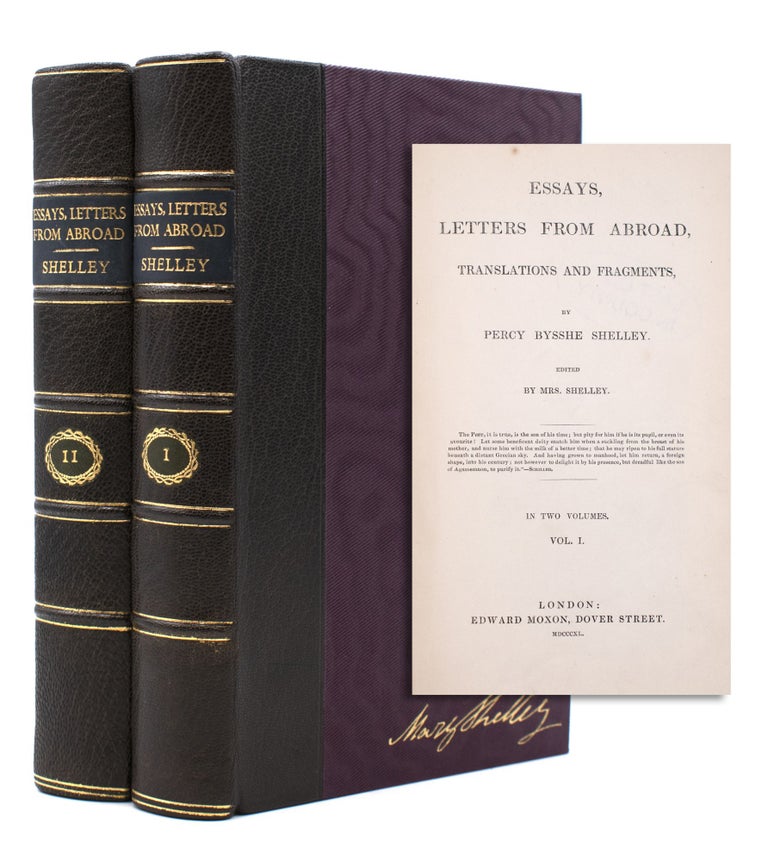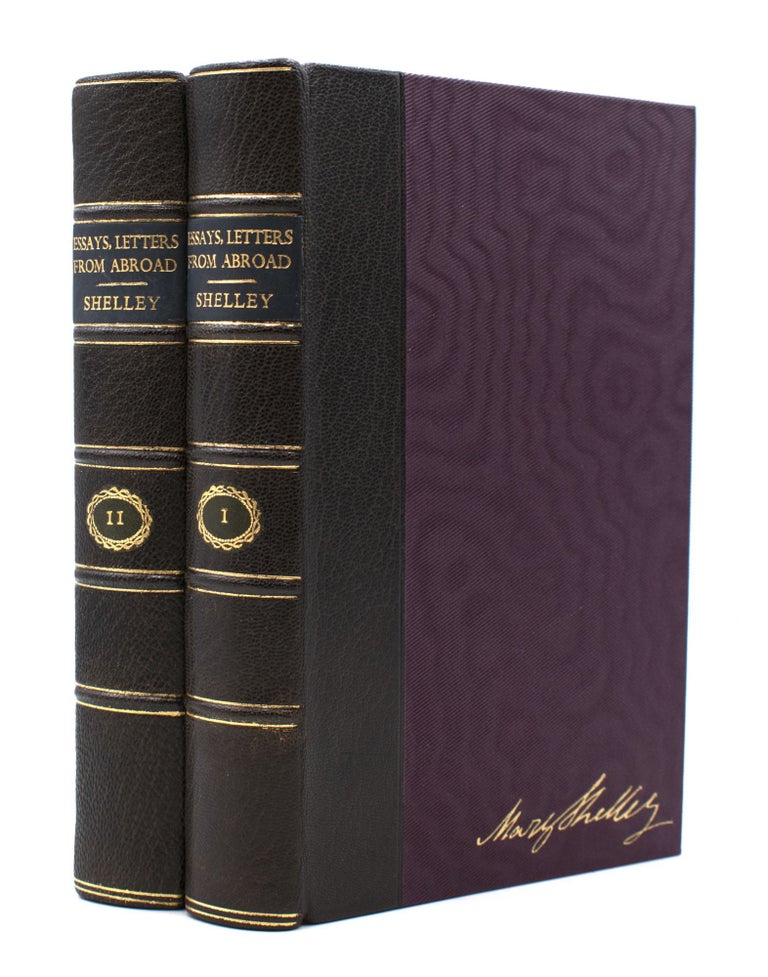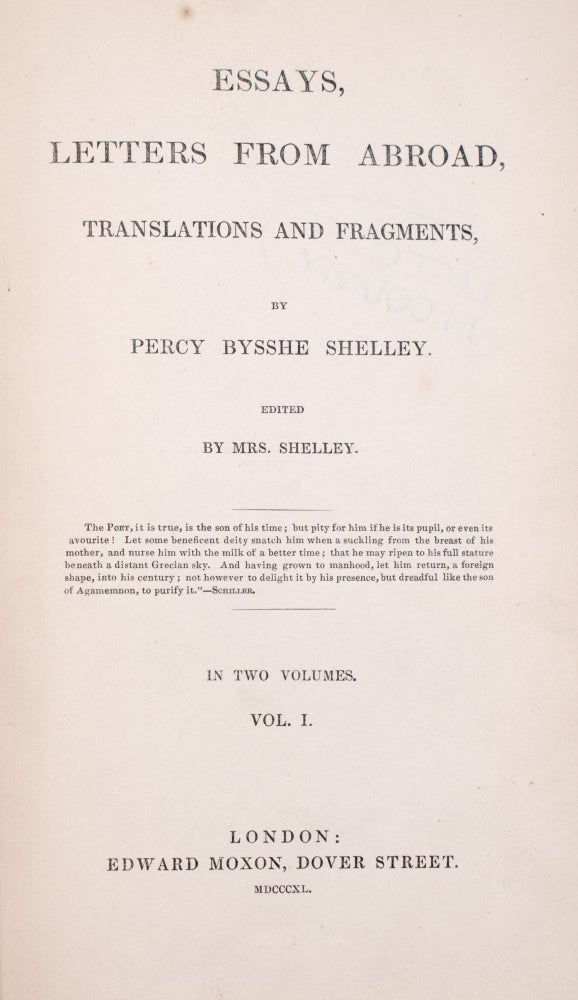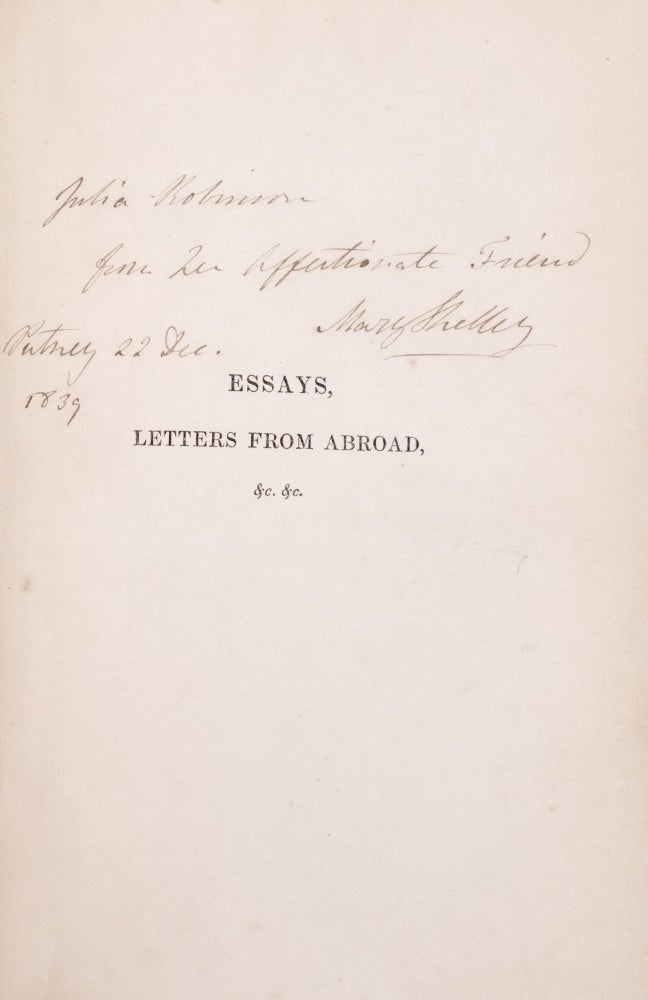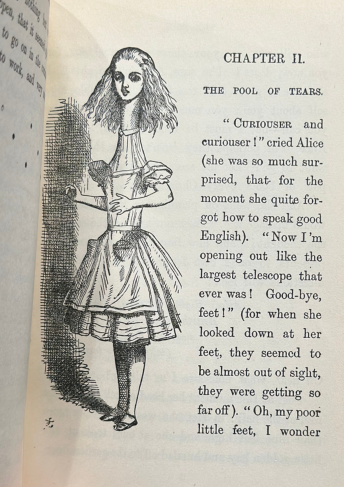Inscribed by Mary Shelley in December 1839
Essays, Letters from Abroad, Translations, and Fragments. Edited by Mrs. Shelley.
London: Edward Moxon, 1840.
Price: $45,000.00
About the item
First edition. 2 vols. 8vo. Inscribed by Mary Shelley in December 1839. Recent half morocco and cloth. Formerly in the Exeter City Library with stamps. With a number of early, neat pencil annotations in an unidentified hand (1:164, 1:167; 1:234-239, three pages with lines shaved at the bindery). Very good. Forman 77; Graniss 82. For Isabella Robinson and David Lyndsay, see Betty T. Bennett. Mary Diana Dods, A Gentleman and a Scholar (1991).
Item #324477
Contains the first printing of Shelley's "The Defence of Poetry" and also his translations from the classics (including Plato's “Symposium,” “Ion,” and fragments from “The Republic”) and 67 letters. “The Defence of Poetry” was edited by John Hunt for inclusion in “The Liberal” but the magazine folded before it could be published. This first appearance used John Hunt's edited version.
Inscribed in each volume, “Julia Robinson from her affectionate friend, Mary Shelley, Putney 22 Dec. 1839”. This inscription documents Mary Shelley’s close connection with the Robinson family, who figure for many years in her journals (as well as in the Journals of William Godwin, her father). From February 1827 Mary became close to Julia and Isabel (or Isabella) Robinson, daughters of Joshua Robinson, an Oxford graduate and a successful builder with a large family and a large residence, Park Cottage in Paddington. After Isabella bore an illegitimate child, she and Mary Shelley shared lodgings in the south of England in the summer of 1827. The inscription also points to a long-secret chapter in Mary’s life documented by Betty T. Bennett in Mary Diana Dods, A Gentleman and a Scholar (1991). Mary Shelley’s friend Mary Diana Dods was the illegitimate daughter of a Scottish earl and wrote numerous works for Blackwood’s Magazine under the name David Lyndsay, including a story collection, Tales of the Wild and the Wonderful (1825). Beginning in 1827 Mary Dods assumed the name and persona of Mr. Walter Sholto Douglas and, with Isabella Robinson, determined to live on the Continent where it was cheaper and where the legitimacy of Isabella’s child would not be questioned. Mary Shelley secured the passports for the couple to travel to France as Mr. and Mrs. Walter Sholto Douglas. In April 1828, Mary Shelley travelled to Paris with Mr. Robinson and Julia “who has become Mary Shelley’s new young companion” (Bennett, 38) to visit the Douglases. During much of that stay Mary was ill with smallpox, and “her great regret is that she endangered Julia Robinson” (Bennett, 136). Mr. Sholto Douglas was later imprisoned for debt and died in France. Isabella was estranged from Mary Shelley when she returned to England in 1830, but Mary and her son lived with Julia Robinson for part of 1833 and clearly preserved friendly ties thereafter.
An important book with an evocative association.

